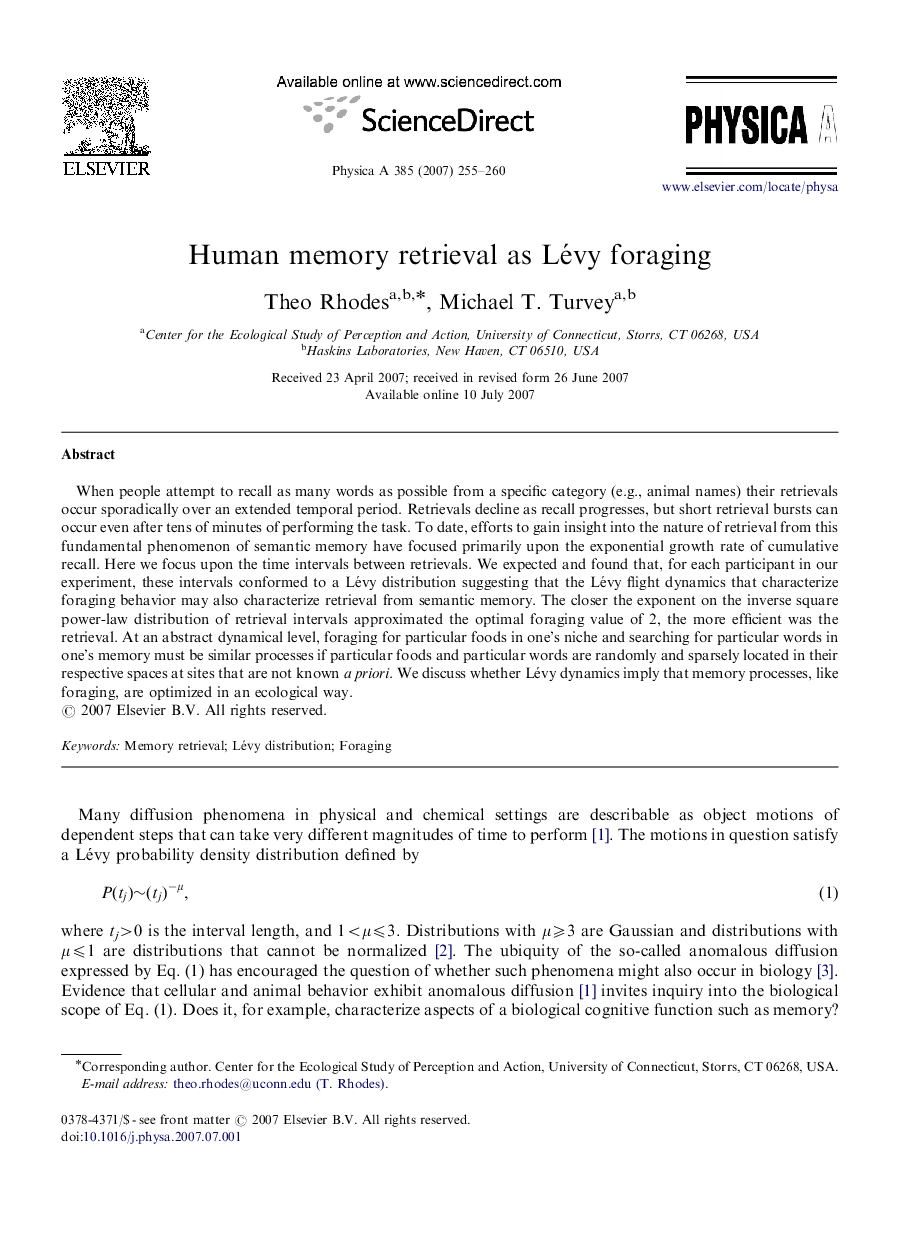| Article ID | Journal | Published Year | Pages | File Type |
|---|---|---|---|---|
| 979063 | Physica A: Statistical Mechanics and its Applications | 2007 | 6 Pages |
When people attempt to recall as many words as possible from a specific category (e.g., animal names) their retrievals occur sporadically over an extended temporal period. Retrievals decline as recall progresses, but short retrieval bursts can occur even after tens of minutes of performing the task. To date, efforts to gain insight into the nature of retrieval from this fundamental phenomenon of semantic memory have focused primarily upon the exponential growth rate of cumulative recall. Here we focus upon the time intervals between retrievals. We expected and found that, for each participant in our experiment, these intervals conformed to a Lévy distribution suggesting that the Lévy flight dynamics that characterize foraging behavior may also characterize retrieval from semantic memory. The closer the exponent on the inverse square power-law distribution of retrieval intervals approximated the optimal foraging value of 2, the more efficient was the retrieval. At an abstract dynamical level, foraging for particular foods in one's niche and searching for particular words in one's memory must be similar processes if particular foods and particular words are randomly and sparsely located in their respective spaces at sites that are not known a priori. We discuss whether Lévy dynamics imply that memory processes, like foraging, are optimized in an ecological way.
